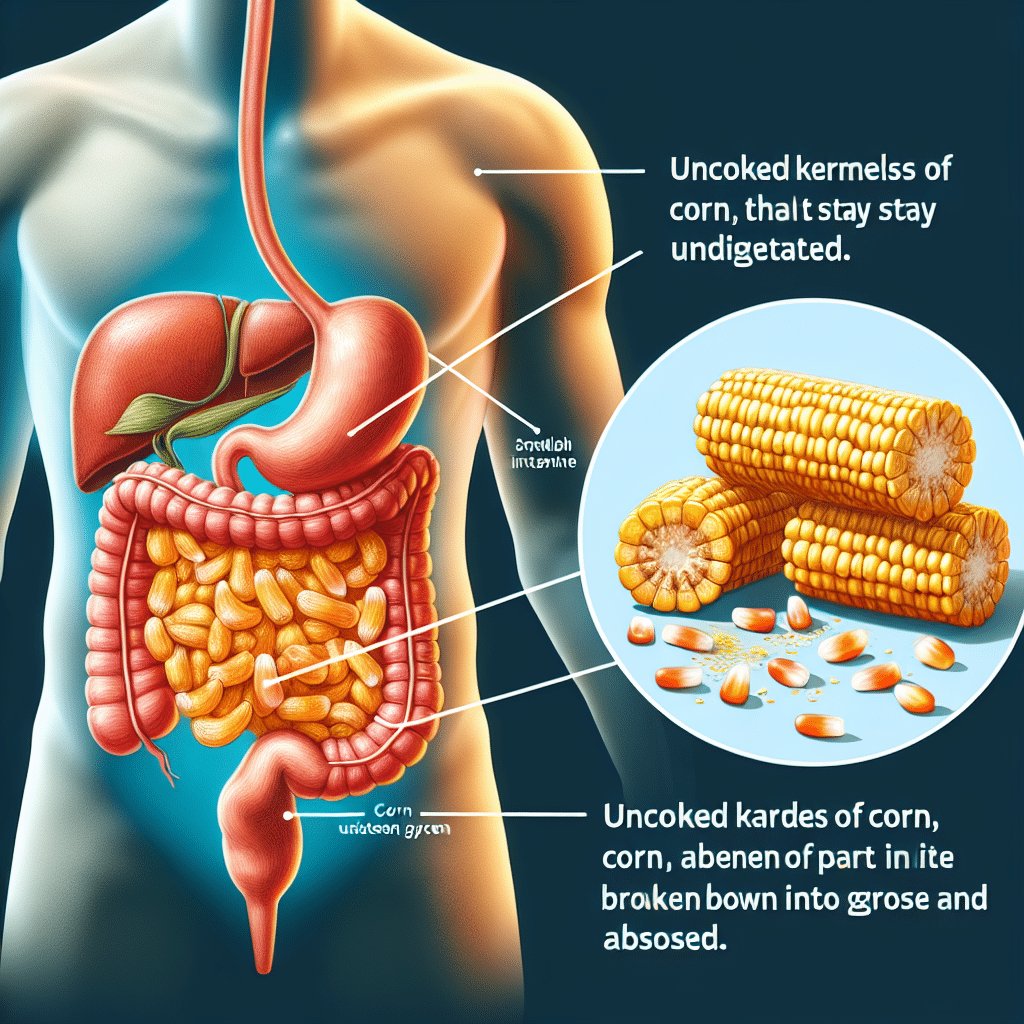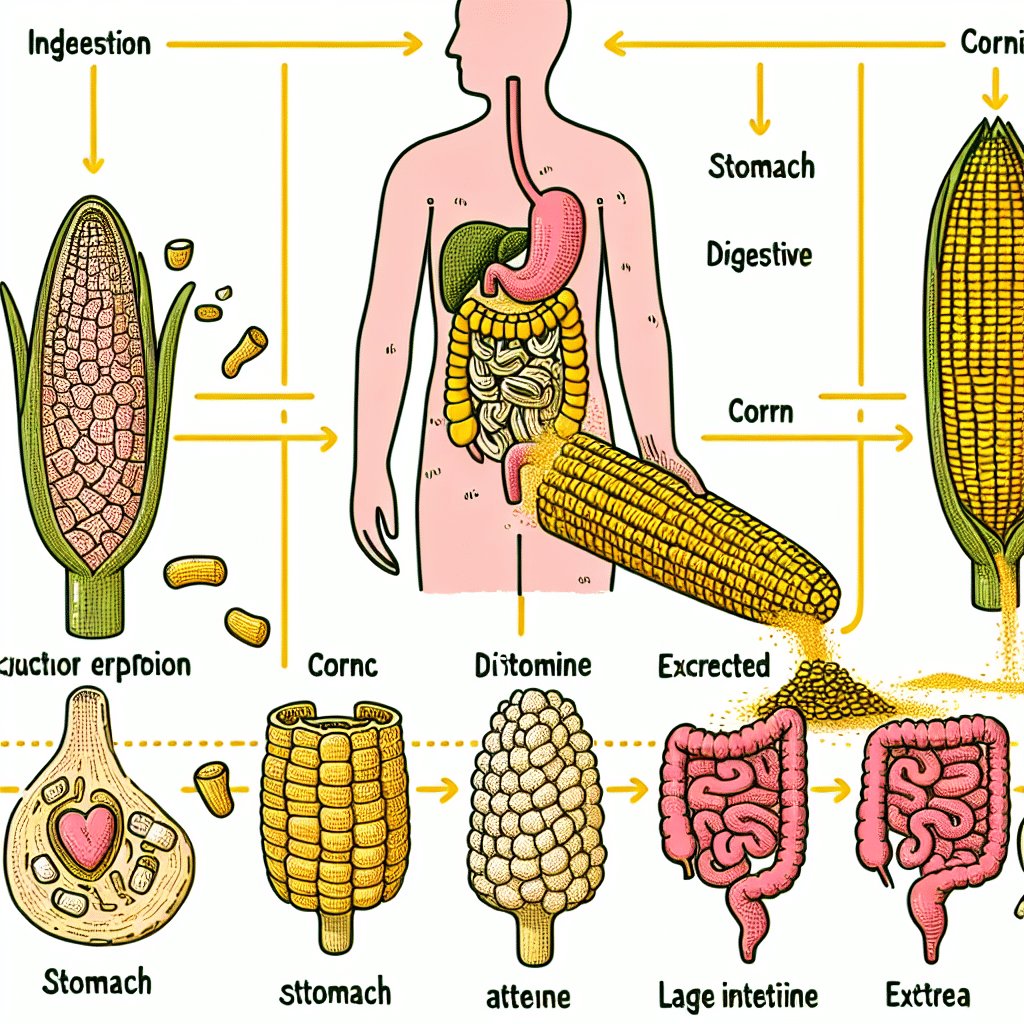
What happens inside our digestive systems when we feeble humans consume digestion-resistant corn? You wouldn’t know from the not-so-helpful graphics holding rank as Google’s top image results for the query, which have been polluted by bizarre AI-generated slop.
As pointed out on X-formerly-Twitter by the hardworking account “Insane Facebook AI Slop,” a simple search query for the phrase “does corn get digested” returns a Google image results page loaded down with strange, nonsensical AI graphics claiming to depict corn kernels’ quest through the human digestive tract. As it stands, four out of the top six results for the query — including the first and second results — are AI slop, and all stem from one of two spam blog posts published by a shady website claiming to sell “Top-notch Proteins&Nutrition” from “China No.1 Manufacturer.”
Each graphic yields its own slate of AI-mangled oddities — and, frequently, body horrors.
Take the top-ranked image for the query, which is linked to a clearly AI-generated blog post titled “Do Humans Digest Corn?” The graphic appears to suggest that human-consumed corn piles up in the human body outside of our intestines, and may even sprout a vine that could, per the allegedly scientific graphic, wrap around our internal organs. (It’s unclear which organ this one is actually meant to be, but we’re guessing maybe liver?)
Text overlaid on the graphic is somehow even less helpful than the image itself.
“Uncoked kermelss of corn thatlt stay stay undigetated,” reads the garbled text. “Uncoked kardes of corn, corn, abenen of part in ite broken bown into grose and absosed.” Okay!

The second-ranked result — which is linked back to a near-identical spam blog titled “How Long Does It Take Corn To Digest?” — presents a similar vision for corn’s digestive journey. This time, though, the graphic suggests that consuming corn somehow transforms humans’ intestines into yellow maize, meanwhile insisting that a pink, Valentines-style heart is located at the center of the stomach.
The graphic also includes a series of captioned images to define the major players at hand; they include “cornc,” the “sttomach,” and the “lage intetiine.” (We’ll let you guess what all of those are supposed to be.)

To be clear: eating corn will not turn your intestines into the field vegetable, nor will it lead to internally-sprouted vegetation wrapping around major organs like a boa constrictor. While some parts of corn kernels are digestible, corn is packed with insoluble fiber, meaning that certain parts of the kernel go through the human digestive system intact — leading to the widely accepted myth that humans simply can’t digest corn at all. (Curious people Googling that phenomenon, presumably, are why spammy AI content mills are churning out garbage-quality blog posts about corn digestion in the first place.)
The discovery is just the latest that illustrates the impact that cheap and easy-to-make AI slop is having on our information pathways, clogging search results with woefully unhelpful — if at times hilarious — text and imagery.
As of May 2024, according to Search Engine Land, Google controlled roughly 90 percent of all search market share, meaning that Google’s search tools are the primary means by which most humans access and explore the web. So as AI garbage leaches its way into the search engine’s top results, it makes the internet a more frustrating, harder-to-manage landscape riddled with inaccurate, insidious, or — as so perfectly captured by the image results above — straight-up bonkers information.
Put more simply? We’re in the midst of a digital slopageddon, with the felt everyday impacts ranging from mild irritants like graphs about “uncoked kermelss” to more serious information erosions — the replacing of images of famous artworks and historical events with AI-generated fakes, for example, or the flooding of social media with fake AI-generated imagery during environmental disasters.
Anyway. Time to go eat some glue.
More on AI slop: People Think the Hollywood Sign Is on Fire Because of AI Slop